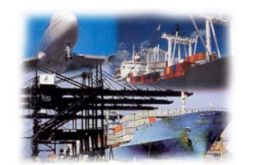MercoPress. South Atlantic News Agency
Tag: World Trade Organization
-
Tuesday, May 15th 2012 - 00:52 UTC
EU agrees to file a trade suit with WTO against Argentina’s import restrictions

The European Union has agreed to file a trade suit against Argentina's import restrictions with the World Trade Organization (WTO), a senior Spanish government source said on Monday, reports Reuters.
-
Monday, May 14th 2012 - 23:17 UTC
Argentina writes to EU expressing “great concern” because of Spanish ban on bio-diesel

The Argentine government expressed “great concern” on Monday following the decision from the Spanish government to ban bio-diesel “not produced within the European Union” from the country.
-
Tuesday, April 24th 2012 - 20:58 UTC
EU preparing to lodge a complaint at WTO against Argentina import restrictions

The European Union is planning to lodge a complaint at the World Trade Organization over Argentina's import restrictions and is seeking other trading partners to back its presentation, a source familiar with the situation said on Tuesday according to news agencies.
-
Thursday, April 12th 2012 - 17:48 UTC
World trade growth will slow for second year in 2012, anticipates WTO

World trade growth will slow for a second year to 3.7% in 2012 but “severe” downside risks could drive it further below the 20-year average of 5.4%, the World Trade Organization forecast on Thursday.
-
Friday, September 9th 2011 - 22:40 UTC
Argentina to propose temporary increase of some import tariffs in Mercosur framework

Argentina is considering a temporary increase of tariffs on some imports, following on Brazil’s steps, but is also thinking of a formal proposal to its Mercosur partners.
-
Friday, February 4th 2011 - 22:28 UTC
Brazil preparing package to counter surging imports rapidly eroding trade surplus

Brazil’s trade surplus fell more than economists expected in January from a month earlier as exports declined at a faster pace than imports. The surplus narrowed to 424 million USD last month from 5.37 billion in December, said the Trade Ministry.
-
Wednesday, June 30th 2010 - 06:32 UTC
EU/Mercosur talks must go “beyond tariffs and subsidies”

The association agreement between the European Union and Mercosur has to go “beyond tariffs and subsidies”, said Brazilian president addressing businessmen from Brazil and a visiting Italian delegation headed by Prime Minister Silvio Berlusconi.
-
Saturday, May 15th 2010 - 04:44 UTC
Brazil Furious with Argentine “Scare Practices” Threatens Trade Retaliation

Brazil is seriously considering retaliation against Argentina for new rules restricting food imports which allegedly compete directly with Argentine production. EU ambassadors in Buenos Aires made a similar presentation before the Argentine congress earlier this week.
-
Friday, May 14th 2010 - 03:17 UTC
EU Ambassadors Take Trade Restrictions Protest to Argentine Congress

While the Argentine government remained silent, European Union country ambassadors showed up at the Argentine Congress Thursday in order to protest against food import restrictions. The ambassadors, however, saved their criticisms and instead spoke in a conciliatory tone before the Lower House Foreign Affairs Committee, although they did not hide their “growing worry.”
-
Thursday, May 13th 2010 - 10:27 UTC
EU Calls on Argentina Not to Restrict Food Imports

The European Union asked Argentina not to restrict food imports, which was reported by manufacturers and producers. Manufacturing sources said that restrictions began being applied in the last few days on products that are also elaborated locally, in a non-written measure that primarily affects the EU and Brazil.
